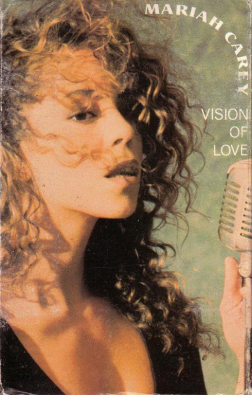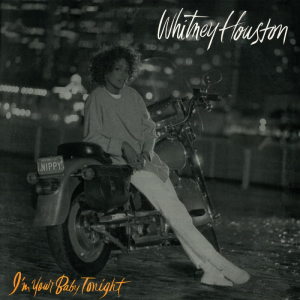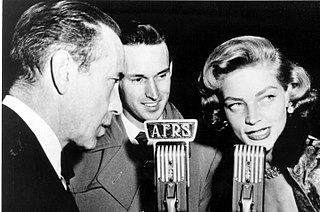Related Research Articles

Mariah Carey is an American singer, songwriter, record producer, and actress. An influential figure in popular music, she is known for her five-octave vocal range, melismatic singing style, and signature use of the whistle register. Carey is also credited with influencing vocal styles, merging hip-hop with pop through her collaborations, popularizing remixes, and helping break down racial barriers for multiracial Americans in popular culture. Referred to as the "Songbird Supreme" by Guinness World Records, she was ranked as the fifth greatest singer of all time by Rolling Stone in 2023, and has been dubbed the "Queen of Christmas" for the enduring popularity of her Christmas music, particularly the 1994 song "All I Want for Christmas Is You", which is the best-selling holiday song by a female artist.

Whitney Elizabeth Houston was an American singer, actress, film producer, and philanthropist. Known as "the Voice", she is one of the most awarded entertainers of all time, having been inducted into numerous halls of fame. Houston's crossover appeal on the popular music charts and her performances influenced the breaking down of gender and racial barriers, as well as popular culture. She has been recognized for her vocal delivery, distinctive timbre, and for popularizing the use of gospel singing techniques in pop music. In 2023, Rolling Stone ranked Houston second on their list of the greatest singers of all time. She has sold over 220 million records worldwide, becoming one of the best-selling music artists in history. Houston also enhanced her popularity by producing and starring in multicultural movies. Her life and career have been the subject of multiple documentaries and television specials.

The human voice consists of sound made by a human being using the vocal tract, including talking, singing, laughing, crying, screaming, shouting, humming or yelling. The human voice frequency is specifically a part of human sound production in which the vocal folds are the primary sound source.

Reinke's edema is the swelling of the vocal cords due to fluid (edema) collected within the Reinke's space. First identified by the German anatomist Friedrich B. Reinke in 1895, the Reinke's space is a gelatinous layer of the vocal cord located underneath the outer cells of the vocal cord. When a person speaks, the Reinke's space vibrates to allow for sound to be produced (phonation). The Reinke's space is sometimes referred to as the superficial lamina propria.
Melisma is the singing of a single syllable of text while moving between several different notes in succession. Music sung in this style is referred to as melismatic, as opposed to syllabic, in which each syllable of text is matched to a single note. An informal term for melisma is a vocal run. The term roulade is also sometimes used interchangeably with melisma.
Nicolette Louisa "Nikki" Palikat is a Malaysian American singer from Tambunan, Sabah. She reached top 12 in the first season of Malaysian Idol. Nikki is known for her vocal belting and her ability to sing in the whistle register.

Whitney Houston is the debut studio album by American singer Whitney Houston. It was released on February 14, 1985, by Arista Records. Whitney Houston initially had a slow commercial response, but began getting more popular in mid-1985. It eventually topped the Billboard 200 for 14 weeks in 1986, generating three number-one singles—"Saving All My Love for You", "How Will I Know" and "Greatest Love of All"—on the Billboard Hot 100, which made it both the first debut album and the first album by a solo female artist to produce three number-one singles.

Mariah Carey is the debut studio album by American R&B singer Mariah Carey, released on June 12, 1990, by Columbia Records. Its music incorporates a range of contemporary genres with a mix of slow ballads and up-tempo tracks. Originally, Carey wrote four songs with Ben Margulies, which solely constituted her demo tape. After Carey was signed to Columbia, all four songs, after being altered and partially re-recorded, made the final cut for the album. Aside from Margulies, Carey worked with a range of professional writers and producers, all of whom were hired by Columbia CEO, Tommy Mottola. Mariah Carey featured production and writing from Rhett Lawrence, Ric Wake and Narada Michael Walden, all of whom were top record producers at the time. Together with Carey, they conceived the album and reconstructed her original demo tape.

"When You Believe" is a song made for the 1998 DreamWorks musical animated feature The Prince of Egypt, music and lyrics by Stephen Schwartz. A pop single version of "When You Believe" performed by American singers Whitney Houston and Mariah Carey, with additional music and lyrics by writer-producer Kenneth 'Babyface' Edmonds, was also recorded for the film's end credits and its soundtrack album by DreamWorks Records. Additionally, the song serves as the soundtrack's lead single on November 2, 1998 and for both Houston's fourth studio album, My Love Is Your Love by Arista Records and Carey's first compilation album, #1's by Columbia Records. The original version of the song, featured in the narrative portion of the film, is performed by Sally Dworsky, Michelle Pfeiffer, and a children's choir soloist Andrew Bryan. "When You Believe" is described as a big ballad, with meaningful and inspirational lyrics, describing the ability each person has to achieve miracles when they reach out to God and believe.

"There's Got to Be a Way" is a song recorded by American singer-songwriter Mariah Carey for her eponymous debut studio album (1990). Columbia Records released it as the fifth and final single from the album in the United Kingdom and several European countries on May 20, 1991. The song became a minor hit in the UK as well as becoming a minor hit in many European countries. A five-track digital extended play containing remixes of the song was released in July 2020 as part of the 30th-anniversary celebrations of her debut album.

"I Don't Wanna Cry" is a song recorded by American singer Mariah Carey for her first album Mariah Carey (1990). Written by Carey and producer Narada Michael Walden, Columbia Records released it as the album's fourth single in March 1991. A Latin soul–influenced pop ballad, the torch song describes the end of romance. It features drums, guitars, digital synthesizers, and a classic song structure with highly delineated section roles. Modulations occur between these segments that emphasize the singer's emotions. Varying from whispering to belting, Carey's vocal range spans more than two octaves.

"Vision of Love" is the debut single by American singer-songwriter Mariah Carey, recorded for her eponymous debut studio album (1990). It was written by Carey and Ben Margulies. After being featured on Carey's demo tape for Columbia Records, the song was re-recorded and produced by Rhett Lawrence and Narada Michael Walden. The song features a slow-dance theme tempo and backing vocals sung by Carey, and introduces her usage of the whistle register. The lyrics of the song represent her past life filled with "alienation" and how she had dreamed of achieving her triumph over adversity up to the moment when it finally came to fruition as the "vision of love" that she had always believed in, despite everything that she has had to deal with in life. The song was released as the lead single from Mariah Carey on May 15, 1990, by Columbia Records.

"Always Be My Baby" is a song recorded by American singer-songwriter, and record producer Mariah Carey for her fifth studio album, Daydream (1995). It was released by Columbia Records on February 20, 1996, as the third single in the United States and fourth worldwide. Written and produced by Carey, Jermaine Dupri and Manuel Seal, "Always Be My Baby" is a midtempo song, with lyrics describing the feeling of attachment and unity the singer feels towards her estranged lover, even though they are no longer together, she says he will always be a part of her and will "always be her baby" even after they move on.

Belting is a specific technique of singing by which a singer carries their chest voice above their break or passaggio with a proportion of head voice. Belting is sometimes described as "high chest voice" or "mixed voice", although if this is done incorrectly, it can potentially be damaging for the voice. It is often described as a vocal register, although this is also technically incorrect; it is rather a descriptive term for the use of a register.

"I'm Your Baby Tonight" is a song by American singer Whitney Houston from her third studio album, I'm Your Baby Tonight (1990). Written and produced by L.A. Reid and Babyface, in Australia and most European countries it was released as the album's lead single by Arista Records on September 28, 1990; in the United States, the release date was October 2. Following the release of her second studio album Whitney (1987), Houston became the first woman ever to debut atop the Billboard 200; despite this, critics deemed it safe and formulaic. Additionally, she was booed at the 1989 Soul Train Music Awards and accused of being "not black enough"; Houston decided she needed to change her sound if she wanted to recapture black audiences.

Bogart–Bacall syndrome (BBS) is a voice disorder that is caused by abuse or overuse of the vocal cords.
A voice type is a group of voices with similar vocal ranges, capable of singing in a similar tessitura, and with similar vocal transition points (passaggi). Voice classification is most strongly associated with European classical music, though it, and the terms it utilizes, are used in other styles of music as well.
Jody Williams is a South African pop/R&B singer. She won the fourth season of the South African reality television singing competition Idols on 9 December 2007 at age 17, making her the youngest winner of the competition until 2017, when Paxton Fielies won the Competition at age 17.
Lin Yu-chun ; born 9 March 1986 in Taipei) is a Taiwanese singer, who gained fame by appearing on a Taiwanese talent show, One Million Star (超級星光大道), singing "I Will Always Love You" in the style of Whitney Houston's cover version. Lin is well known for his mezzo-soprano-like, and sometimes, contralto-like countertenor singing voice, although he has an adult speaking voice. According to many sources, Lin's voice is usually described as a mixture of Whitney Houston and Susan Boyle, with a dash of Cher. When Lin sings in his normal masculine voice rather than in a falsetto range, his voice actually somewhat sounds like Jamie Walters, or even possibly like Jackson Browne, and to a lesser extent, George Harrison.. In 2013, he competed in the second season of The Voice of China.
Hollie Jessica Cavanagh is an English-American pop singer. She placed fourth on the eleventh season of American Idol.
References
- 1 2 "Wo-o-o, whoa: Stop oversinging!". Fort Worth Star-Telegram . Fort Worth, Texas, United States: Gary Wortel. March 26, 2007. Archived from the original on July 14, 2014. Retrieved April 21, 2017.
- 1 2 Hebert, Chris (Jan–Feb 2003). May, Lorin (ed.). "The Harmonizer Jan-Feb 2003" (PDF). The Harmonizer. 63 (1). United States: 16–19. Retrieved February 2, 2013.
- 1 2 3 4 5 6 Moss, Corey (February 6, 2006). "The Scourge Of 'American Idol': Oversingers". MTV . Archived from the original on October 23, 2012. Retrieved February 2, 2013.
- ↑ Jones, David L. "Sing dramatically Without Pushing the Voice". The Voice Teacher. Retrieved February 2, 2013.
- 1 2 Everitt, Lauren (February 15, 2012). "Whitney Houston and the art of melisma". BBC News Magazine . United Kingdom. Archived from the original on February 4, 2013. Retrieved February 2, 2013.
- ↑ Grant-Williams, Renee. "Singing on American Idol". Renee Grant-Williams . Archived from the original on October 9, 2018. Retrieved February 2, 2013.
- ↑ Daly, Sean (August 3, 2006). "You're no Mariah". Tampa Bay Times . United States. Archived from the original on October 24, 2012. Retrieved February 2, 2013.
- ↑ Grant-Williams, Renee (March 25, 2010). "Grant-Williams Bemoans Over-Singing Epidemic". MusicRow . United States. Archived from the original on April 1, 2010. Retrieved February 2, 2013.
- ↑ "Technical Virtuosity confused with Quality". Arizona Daily Star . August 22, 2003. Archived from the original on July 25, 2011. Retrieved February 2, 2013.
- ↑ Willman, Chris (December 11, 2000). "Genie at Full Throttle". Entertainment Weekly . Archived from the original on May 23, 2013. Retrieved February 2, 2013.
- 1 2 C. McKINLEY Jr., JAMES (November 18, 2011). "Advances in Medicine Lead Stars to Surgery". The New York Times . New York, United States. Archived from the original on July 16, 2014. Retrieved February 2, 2013.
- ↑ Hodge, Cheryl (2008). A Singer's Guide for the Well-Trained & Powerful Voice. United States: Cheryl Hodge.
- ↑ "Opera legend Pavarotti dies". Stuff. 31 January 2009. Archived from the original on October 26, 2020. Retrieved 26 October 2020.
- 1 2 3 Parsons, Aubrey (March 2008). "Taking Care Of Your Voice". Performing Musician. Cambridge, United Kingdom. Archived from the original on March 26, 2013. Retrieved February 3, 2013.
- ↑ Johnson, Chris (August 1, 2016). "Mariah Carey case study". iSing Magazine. Archived from the original on March 3, 2018. Retrieved October 26, 2020.
- ↑ "Joss Stone's 'diva' tendencies could ruin career, say ex-managers". Evening Standard . United Kingdom. 13 October 2007. Archived from the original on October 26, 2020. Retrieved October 26, 2020.
- ↑ Connelly, Chris; Soichet, Aude (January 9, 2012). "From Adele to Kiss' Paul Stanley: Why Are So Many Award-Winning Singers Undergoing Vocal Cord Surgery?". ABC News . New York City, United States. Archived from the original on October 20, 2012. Retrieved February 3, 2013.
- ↑ Snapes, Laura (November 21, 2012). "Björk Undergoes Successful Laser Treatment for Vocal Cord Nodules". Pitchfork. Chicago, United States. Retrieved July 27, 2013.
- ↑ Ganz, Caryn (May 2005). "Q&A Shirley Manson". SPIN. SPIN Media LLC: 28. ISSN 0886-3032.
- ↑ "Comprehensive review analyzes vocal-cord restoration in 18 Grammy Award-winning singers". EurekAlert!. February 7, 2019. Retrieved July 30, 2020.